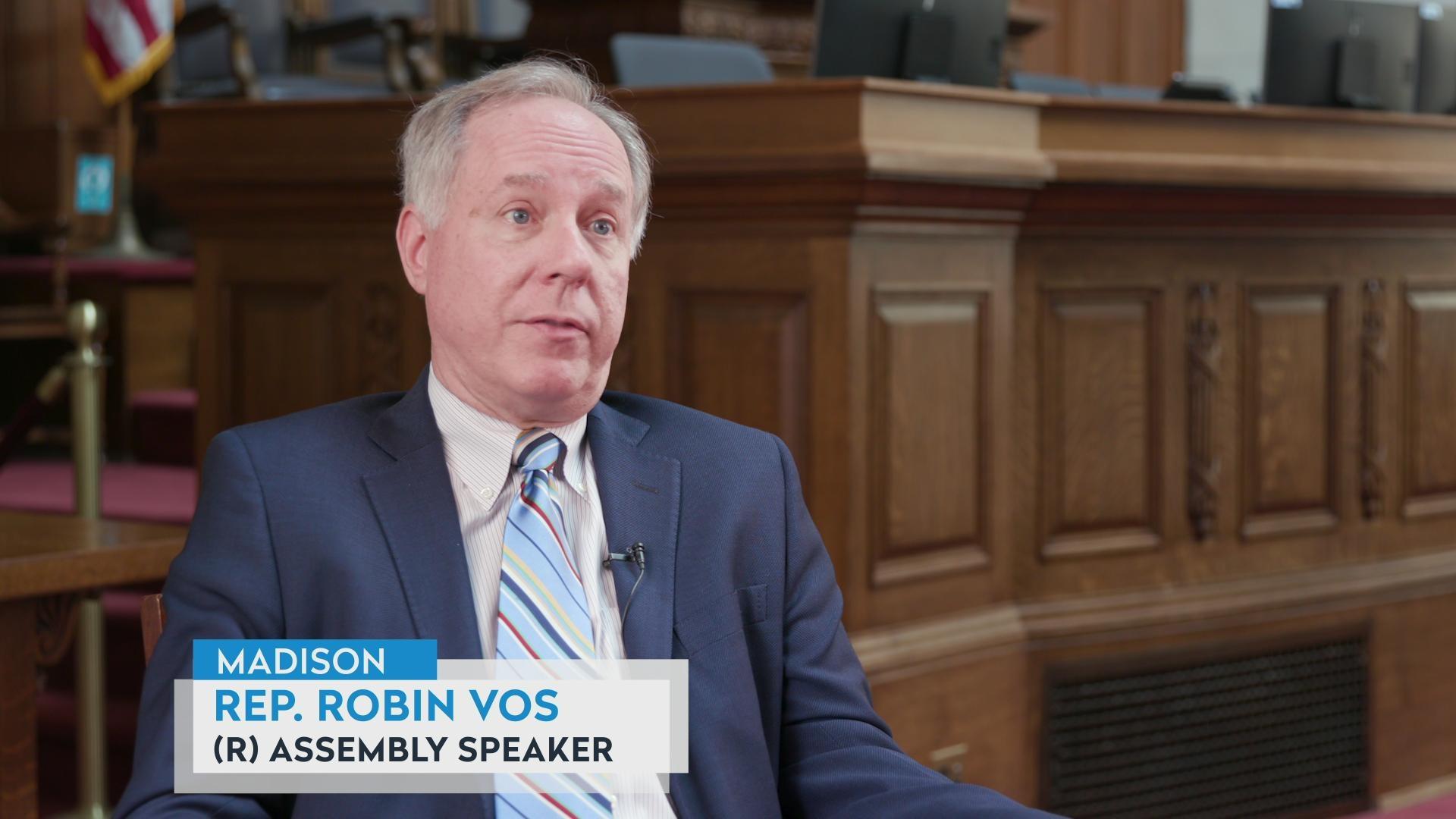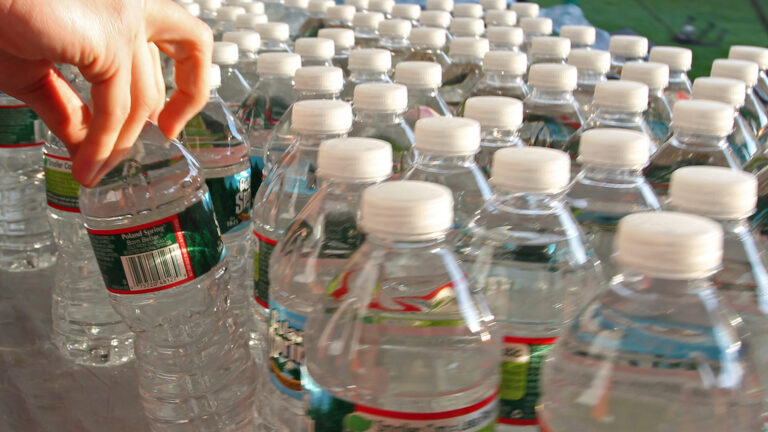Frederica Freyberg:
In November, we reported on an investigation into child labor violations by Wisconsin-based company Packers Sanitation Services. In February, the U.S. Department of Labor reported more than 100 children were working illegally for the company across eight states. The minors were working overnight shifts as well as working with hazardous chemicals and dangerous meat processing equipment. The $1.5 million in penalties to be paid by the company makes it one of the largest child labor cases in the department’s history. Child labor has increased by nearly 70% since 2018, leading to a call for increased penalties and other measures to curb illegal child labor. We go now to Michael Lazzeri, the regional administrator of the Wage and Hour Division at the U.S. Department of Labor. Thank you for being with us.
Michael Lazzeri:
Thank you for having me.
Frederica Freyberg:
So according to data from your agency, Wisconsin has the second most child labor violations of our surrounding states, averaging about 99 per year since 2018. Only Michigan was higher. Why has child labor exploded on the national level?
Michael Lazzeri:
Our focus is always to identify instances where employers are exploiting vulnerable workers. Kids are vulnerable under any circumstance. They’re frightened to complain. They’re afraid of letting their families and their communities down and, honestly, they think they’re going to be in trouble, and that vulnerability translates to them being more prone to injuries in the workplace, and in settings that are especially dangerous, like a manufacturing facility or a meat processing plant those vulnerabilities are even further amplified.
Frederica Freyberg:
But we do know that the number of unaccompanied minors entering the United States climbed to a high of 130,000 last year, three times what it was five years earlier. Is that a demographic of children that is being exploited and the result of these child labor law violations, migrants coming in?
Michael Lazzeri:
Well, one thing I can say is that exploitation is exploitation, regardless of who the child is and what their background is, and when we are looking at investigations, our primary purpose is to look at who the employer is and who the employee is. So we look at it not with a blind eye, but neutrally. And we look at it — we don’t ask questions about status. We don’t question — ask questions about background. We do determine whether or not the child is in a safe environment and we are trained to identify instances of trafficking, if that’s appropriate. However, it’s not our primary purpose. We investigate the child labor standards of the Fair Labor Standards Act and that act defines the employee and the employer without regard to status or background.
Frederica Freyberg:
In your mind, could the number of violations actually be undercounted?
Michael Lazzeri:
I have no doubt. Across 10 states in the Midwest, we have less than 150 investigators that are covering hundreds of thousands of employers over hundreds of thousands of miles and we do everything that we can to target industries that are most likely to employ minors. And we do a substantial amount of outreach to communities, to employers, to schools, and we receive a lot of information from the public and from the community. And we have an obligation to act on that information very quickly, but when you’re dealing with industries that are behind walls and fences, the public can’t see them, and they can’t see what’s happening inside those four walls. And so it requires a lot more work for us and, you know, we rely on the public and we rely on employers and we do our best to target investigations as well into certain industries where we think there are going to be kids, but with less than 150 investigators, there’s only so much ground we can cover.
Frederica Freyberg:
Given the industrial mix, how fertile is a state like Wisconsin for child labor violations?
Michael Lazzeri:
Well, I think across the Midwest, the situation is especially dire when you’re talking about manufacturing, when you’re talking about the types of industries. Meat processing, where we were just doing investigation of PSSI, you know, we looked across multiple states, not just across the Midwest, but across the entire country, but the greater concentration of plants that we saw was definitely here.
Frederica Freyberg:
What kinds of jobs are minors working and what kind of hours?
Michael Lazzeri:
Generally, I think it’s important to make a distinction between child labor, which we typically see, which is in, for example, in fast food, where your issues with minors would be kind of confined to hours worked, use of equipment, so if they’re working past 9:00 during a school night or during the week or they’re working too many hours, that’s one type of violation. When you’re talking about manufacturing and some of these other industries, now you’re talking about the types of equipment that minors are using, and so for even 16, 17-year-olds, they’re prohibited from using or cleaning things like a head splitter, bone saws, equipment that could cause serious injury. They can’t use — they can’t be doing construction. Roofing. Those kinds of things. So I think it just depends on which type of child labor we’re talking about, the type that we typically see or the type we’ve been seeing recently, which is more severe and confined to very dangerous types of work.
Frederica Freyberg:
What do you say to companies employing children in violation of the law?
Michael Lazzeri:
Well, it’s their responsibility as an employer when they’re hiring or even bringing in staffing agencies, to put workers in their factories or in their facilities, it’s really up to them to be able to identify — I mean, we looked at PSSI. and we looked at the types of minors or the number of minors that were being employed across the country and you see pictures of these kids and there is no way a reasonable person would look at these kids and say that that is a 30-year old or somebody who is over 18, even in their 20s. So employers have to not rely on, you know — they have to be able to see what they see and be able to take action to be able to make sure that these minors are not being employed in dangerous work.
Frederica Freyberg:
All right. Michael Lazzeri from the U.S. Department of Labor, thank you very much.
Michael Lazzeri:
Thank you.
Search Episodes
News Stories from PBS Wisconsin

Donate to sign up. Activate and sign in to Passport. It's that easy to help PBS Wisconsin serve your community through media that educates, inspires, and entertains.
Make your membership gift today
Only for new users: Activate Passport using your code or email address
Already a member?
Look up my account
Need some help? Go to FAQ or visit PBS Passport Help
Need help accessing PBS Wisconsin anywhere?

Online Access | Platform & Device Access | Cable or Satellite Access | Over-The-Air Access
Visit Access Guide
Need help accessing PBS Wisconsin anywhere?

Visit Our
Live TV Access Guide
Online AccessPlatform & Device Access
Cable or Satellite Access
Over-The-Air Access
Visit Access Guide
 Passport
Passport


















Follow Us